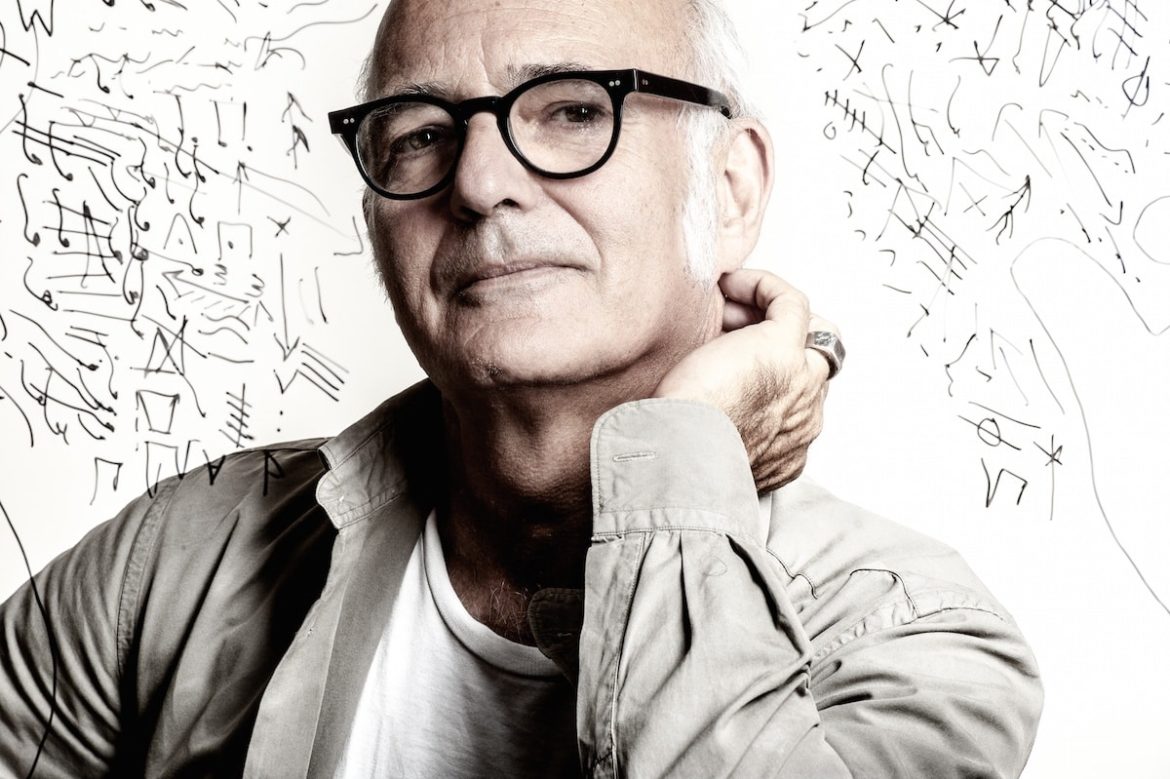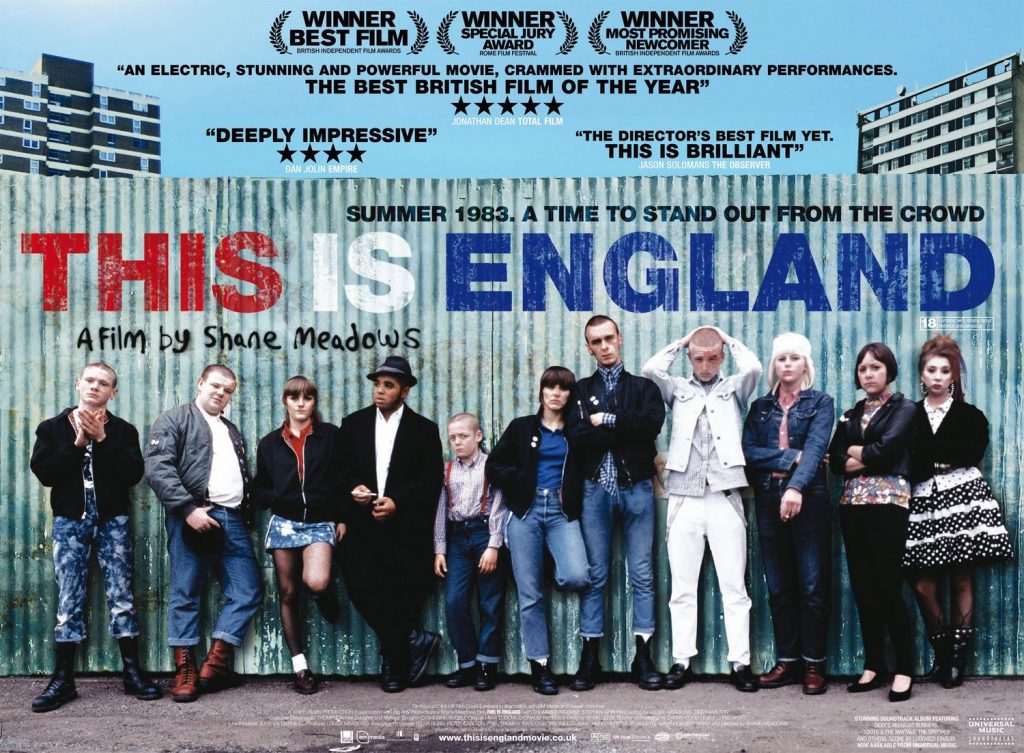We talk to prolific composer Lucovico Einaudi and his publisher about why his music is so syncable.
Ludovico Einaudi is a force to be reckoned with. Just today he made chart history by being the first artist to take all top 10 single positions in the iTunes classical chart. He also happens to be the most streamed classical composer globally, a fact that must be partly attributed to the prolific use of his music in film and advertising.
Having provided music for more than 20 films and TV series including Shane Meadows’ ‘This Is England’ (and the TV sequels), ‘Untouchables’, and ‘Derek’, as well as multiple advertising campaigns, Einaudi is one of the most synced artists on the planet.
With his new album ‘Elements’ due for release next week, we were lucky enough to speak to the man himself as well as his publisher, our client Music Sales, to dig deeper into his work and what makes it so syncable.
A conversation with Ludovico Einaudi:
Hi Ludovico, thanks for speaking with us. Can you explain how your creative process differs when you’re composing for a piece of film?
The process of writing a film score can be very different from project to project. Sometimes I have experiences where I have to write something completely new from the perspective of a traditional film score composer – that means you identify some themes, some motives, some atmospheres that connect certain characters, and certain moments of the evolution and the progression of how the film tells the story. In those cases there is an exploration of finding the right colour, the right emotion that connects properly to the kind of story that you’re going to experience.
It’s a very interesting process and in a way it differs because I don’t have to consider those elements when I’m composing my music for my albums. It differs but it has also to contain the same inspiration, the same strength that you look for when you’re composing for yourself. The work develops in a different way but the quality of the work is very similar.
You seem to have a very modern approach to sync, how do you choose the projects? Is this something that you work closely with your publisher on?
Yes, there is a selection. My publisher receives all the requests and then they pass it to me. Sometimes, especially when they ask me to sync previously recorded music, they send me a description of the film and the scene where the music has to go and I have to say yes or no. This happens quite often now and sometimes it’s not so easy for me because maybe I have to concentrate on something completely different – maybe I’m touring and I have a concert in the evening and I have to decide. There is a possibility that I make mistakes inside this chaotic life but I prefer to say personally yes or no to the projects.
I feel there always must be a reason why I decide to connect with a project, so I tend to find the time to watch all the things that come in. My publisher might send me a note letting me know that I have to focus my attention on some projects more than others, but generally I tend to participate in everything. There must be something that I feel in a way proud that my music is being used. There must also be a creative twist in the way the advertising or film is done. There’s a Guinness advert I’ve seen recently with my music that’s not at all about the beer and it’s very interesting the way they made it – it’s a beautiful advert.
Do you think sync has played a big part in your success?
Well of course an advertisement can bring your music to different audiences. Maybe people that don’t know your name at first and they discover your music through the ad. This has happened to me in the past where I discovered beautiful music through watching a film or watching television. So as I said I think if the connection is good and the advert is intriguing, it can be a very nice way to explore new roads of communication.
What do you think it is about your music that makes it work so well with visuals?
I think that maybe there is a space that is not completely filled in the music that I write. There is the possibility of imagining something in between the sounds that you are listening to. It’s like a painting that has some parts in the frame that are not completely filled, and those moments live to the people that connect to a space for inspiration, for imagination, and when you fill it with images it connects in a more appropriate way. But this is only guessing.
Will we be hearing songs from your latest album ‘Elements’ in any films or advertisements?
In the last episode of ‘This Is England 90’ from Shane Meadows there will be a couple of track from ‘Elements’.
How would you describe what music can bring to a film?
For me music has the power to change completely the meaning of a movie. For me the music is in a way, I feel, maybe because I choose to make music, that the sound and the music are able to go to a deeper level than images. I feel that music is stronger than the images. So there is a great power and this is why I think film scores are so important, and the way you can use music properly in a film can change the quality and the perspective of the film.
What are your own personal favourite uses of music in film?
I’m really interested in the way David Lynch was working with music and sounds in his movies. I also like the work of Gustavo Santaolalla in films such as 21 Grams and Babel, or even the work of Thomas Newman in films like American Beauty. These are a few that are interesting, but there are many more.
A conversation with Lucy Bright, Music Sales
What’s it like working with Einaudi? As an artist he seems very forward thinking in terms of his career and licensing.
Ludovico is a joy to work with, he is the perfect balance of totally focused on the music he writes while understanding its wider place in the world and how that works commercially.
You must get a lot of sync requests for his work – what are some of the key considerations when deciding whether to accept or decline a project?
Whether film or advertising, the main consideration is the creative aspect: is it interesting and beautiful, is it breaking new ground, is it a director Ludovico would like to work with? Everything starts with that.
As his publisher what do you think it is that makes Einaudi’s music so syncable?
Ludovico’s music has an incredible ability to provoke and enhance emotion, the highs and the lows, in a very subtle way and that seems to work perfectly to picture.
What have been some of the highlights of the placements he’s had?
Without doubt Shane Meadows’s use of his music in This is England brought Ludovico to a whole new audience and it remains a very special relationship between director and composer to this day, those who have just watched ‘This is England ‘90’ will have seen they are still working together ten years later. In terms of advertising, the P&G ‘Best Job’ spot during the Olympics which used ‘Divenire’ was pretty amazing in its global reach.
Sync is such a powerful tool for musical discovery these days. How do you think sync has impacted Einaudi’s career? Do you think it plays a part in the success of his album sales and streams?
I think it plays a huge part, watch Twitter during BBC One’s Doctor Foster, ITV’s X Factor or Channel 4’s This is England ‘90 and you’ll find so many people asking what that music is and saying how much they love it.
How do you see the sync licensing market changing and developing?
So many campaigns are online only now, that has definitely changed in the past few years. It used to be that online was almost given as a free extra to a TV campaign, but now it has nearly reversed.
Can you tell us about any of Ludovico’s future projects?
Ludovico loves to come up with fresh ideas; now that the album has launched, a lot of the coming year will be about playing live but not necessarily in the usual venues, he likes to push boundaries, go on a journey and take his audience with him.

